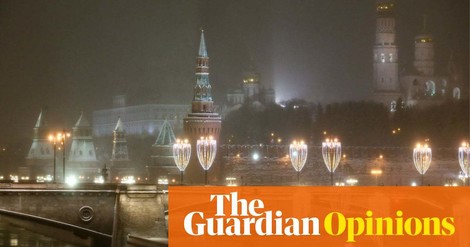Your podcast discovery platform
Curious minds select the most fascinating podcasts from around the world. Discover hand-piqd audio recommendations on your favorite topics.

piqer for: Globalization and politics Global finds
Sezin Öney, originally from Turkey, is based in Budapest and Istanbul. She her journalism career as a foreign news reporter in 1999 and she turned into political analysis as a columnist since 2007. Her interest in her main academic subject area of populism was sparked almost decade ago; and now she focuses specifically on populist leadership, and populism in Turkey and Hungary. She studied international relations, nationalism, international law, Jewish history, comparative politics and discourse analysis across Europe.
Leaving Putin Behind: End Of An Era?
The Guardian's Moscow correspondent Shaun Walker has been a familiar figure to international audiences interested in following up with Russia closely. Walker arrived in Russia in 2000, only a few weeks after Vladimir Putin came into power. He worked in various jobs before taking up journalism in 2003. And now, after 15 years as a foreign correspondent, Walker is leaving Russia; barely a month before the country heads to presidential elections in March 2018. This may be the last elections from which Putin emerges as victorious, as a sense of anomie and fatigue sinks in Russia, both politically and socially.
In one of his final overviews of Russian politics as the Guardian's correspondent, Walker reflects on what made Putin "successful" in the first place. This is a subject he wrote about in his 2017 book about his experiences of living in Russia, "The Long Hangover: Putin's New Russia and the Ghosts of the Past"; which he describes as follows:
[The book] is partly about Putin’s attempts to overcome the legacy of the Soviet collapse and restore a sense of pride to Russians, particularly through the war victory. Putin appealed to many historical events and differing ideas of Russianness, but almost organically, the war established itself as the foundational stone of the new nation. The victory of 1945 was the answer to the trauma of 1991. “Through you, we got used to being winners,” he told veterans in 2000. “This entered our blood. It was not just responsible for military victories, but will also help our generation in peaceful times, help us to build a strong and flourishing country.”
But now it seems like Russia is becoming tired of looking into the past; and readying itself to look ahead. What about Walker himself? In his own words:
So while I’m ready to leave, I suspect that one day I’ll be back. Having seen nothing but Putin’s Russia in the 18-year span of my time there, I’m fascinated by what post-Putin Russia will look like, whether we have to wait six or 26 years to find out.
